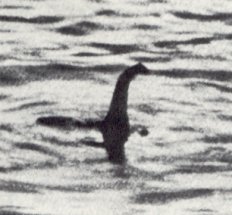
Shareable Science’s five favorite genetics stories of 2019
One of the most rewarding parts of working in the field of genetics is how fast everything seems to move. A year in genetics can change our understanding of everything from autism to the Loch Ness monster. To wrap up another fascinating year, I wanted to highlight a few stories that stood out to me. These caught my eye for a variety of reasons. Some of them could have huge health implications; others just do a great job of piquing curiosity. Without further ado, here are five of my favorite genetics stories of 2019:
5. Genetically engineering a spicy tomato
What can I say? I love a good salsa, and spicy tomatoes could make it all the more intriguing. Bring in a series of promising health effects, and you’ve really got me hooked. Spicy tomatoes could be a prolific source of capcasins, which have anti-inflammatory, antioxidant, antitumoral and weight loss properties. This story is just delicious!
4. How much sleep do you need? The answer is (partly) in your DNA
Anyone who has ever dealt with a teenager will tell you—some people just need more sleep than others. That carries over into adulthood too, though, and it turns out at least part of the reason is genetic. This story is perfect for your morning cup of coffee (or my mug of tea).
3. The Genetics of the Impossible Burger™
I promise I didn’t put this on the list just because I was thinking about how a spicy tomato would taste on one of these burgers. The Impossible Whopper™ made big waves this year, and it sparked a whole series of conversations about meat substitutes and sustainability. This story pulls back the curtain on the genetics involved in what some hope will be a new era for food.
2. How the Loch Ness monster could help save marine life
Much of my family tree is rooted in Scotland, and I love all things Scottish (except maybe for haggis). So I was excited to find a story linking genetics to a famous Scottish body of water – and an even more famous cryptid (the scientific term for a creature that has been rumored, but not proven to exist). Yes, I am talking about the Loch Ness monster. This story isn’t just for fun though; it has serious implications for the conservation of real marine life.
1. Autism linked to gut bacteria in new study
Some of the most fascinating aspects of current genetics research converge with this subject. The microbiome is a hot topic for genetics, with implications for neurodegenerative disease, mental health and now even autism. This story touches on one of the most successful treatments of the core symptoms of autism to date, and it explores even greater potential.
To schedule a media interview with Dr. Neil Lamb or to invite him to speak at an event or conference, please contact Margetta Thomas by email at mthomas@hudsonalpha.org or by phone: Office (256) 327-0425 | Cell (256) 937-8210
Get the Latest Sharable Science Delivered Straight to Your Inbox!
[gravityform id=19 title=false description=false ajax=true][wprpw_display_layout id=8]







